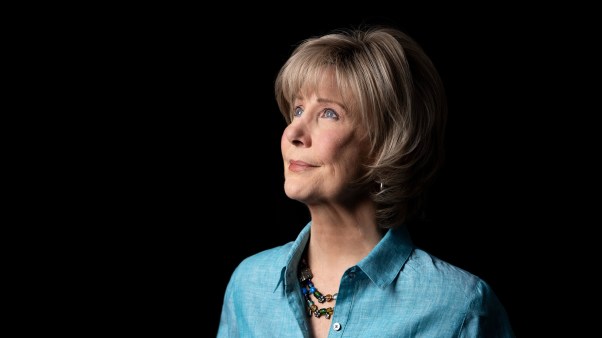Kaufman has once again shown Scripture to be the watershed between evangelical theology and all other religious thinking.
The contrast between evangelical theology and the religious liberalism we now face could hardly be sharper than Gordon D. Kaufman, professor of theology at Harvard Divinity School, makes it in his latest book, The Religious Imagination, Constructing the Concept of God (Westminster, 1981).
Traditional theology, he reminds us, has been based upon the assumption that God has spoken to mankind through Jesus Christ and in the pages of the Bible. Revelation is “from above” and delivers divinely authorized information and images that provide norms for religion, theology, and life itself. Consequently, our knowledge of God is not the mere product of human speculation, but is informed by God’s own revelational activity.
The message of the Bible, which focuses upon the incarnation of the Son of God, was meant to be believed in line with scriptural teachings and not as if it were human guesswork. Although people have constructed ideas of God out of their own minds in both philosophy and other world religions, the biblical revelation was and is the one great exception to the general rule, the infallible Word of God to us.
But Kaufman (and he is not alone in this) no longer has confidence in an objectively existing God who has revealed himself to mankind in this decisive way. Historical criticism has shown him that biblical ideas develop in time just as all ideas do, and the plurality of religions has rendered it implausible that one religion should be true in a way none of the others are. In addition, the idea of a God who exists ontologically over against the world seems reified and mythical to him. He therefore feels compelled to conclude that there is no special revelation and that man is on his own as far as determining what God is like and what his will may be.
He used to think that theology analyzed the very Word of God to man, and its conclusions were as forceful as the exegesis was accurate. But now, since there is no special revelation in Kaufman’s thinking, theology is the scrutiny of the human ideas of people and cultures “constructing toward God” from below. It is the constructive work of man’s own fertile imagination as he seeks to provide for himself a symbolic picture of the world around which he can orient his life and thought. The Christian theologian, then, is in no better position to do this than his secular counterpart or than the theologians of other religious traditions, since all such constructions are manmade. As Christians, the best we can do is to weigh up the symbols in our historical tradition and see what light they have to shed on the common human task of seeking to make history safer and more meaningful. Even “God” is not to be thought of as an existing Other, but as the orienting symbol in our particular picture of reality, a personification of our most important ideals and values. We are left to decide truth for ourselves, unbound by any precedents.
There are some valuable lessons to be learned from Kaufman’s book. First, it illustrates rather plainly that religious liberalism is alive and well in American theology. In recent times we have become averse to polarizing theology into two camps as was done earlier with fundamentalism and modernism, preferring to see it as a spectrum of numerous positions. But Kaufman has indicated from his side a very definite great divide in theology, a massive tine that separates those who believe in the gospel as a special revelation from God from those like himself who simply do not. Evangelical theology seeks to rest its claims upon the Word of God, while liberal theology advocates a religious autonomy in which man gives the word to himself.
Second, a gospel of Christ that stems from man’s own wishful thinking and desperate hoping does not demand much conviction. Of course, man hopes that history might prove to be meaningful and that ultimate reality might turn out to promote and not negate the human enterprise. But to have a gospel that will sustain these hopes, we need a revelation that will sustain the gospel itself by giving it a basis and content. The notion that the gospel is only a human construction surely represents the last gasp of a drowning theology vainly trying to hold on to the existential effects of a world view that has lost its power to convince.
The next step is its merger with humanism pure and simple. A “god” that is no more than the symbol of the evolutionary forces promoting humanization is not the God man needs if his hope for salvation is going to be satisfied. We need a Savior outside of us whom we can worship and whose Word we can know and obey.
Third, those of us who still retain our confidence in the God who reveals himself definitively in Christ and the Bible, and who have a solid message of hope for all mankind, need to make that claim good in the eyes of those who are not convinced of it. It will hardly do to state dogmatically, as Barth did to Feuerbach, that God did reveal himself and that man did not invent God. We must give reasons for our belief that the gospel is a revelation from God and not a human construction or people will not take it seriously if not disposed to do so already.
If the gospel is in the last analysis only a faith orientation, a hope without supporting credentials, then Kaufman has a point in treating it only from the human side. Why ask whether God exists “out there” or not if he is nothing more than our “value orientation”? Traditional theology, which satisfies itself with a “faith in faith” stance, and does nothing to ground its assertions in fact and reality, does not have much of a future in theological discussion. Loud rhetorical assertions that God is “really” out there are not going to substitute for an intellectually solid theology that backs up its faith with its works. Evidence has to be forthcoming to validate the confidence that God is not made in man’s image but is the Lord and Savior of mankind.
Clark H. Pinnock is professor of systematic theology at McMaster Divinity College, Hamilton, Ontario, Canada.










